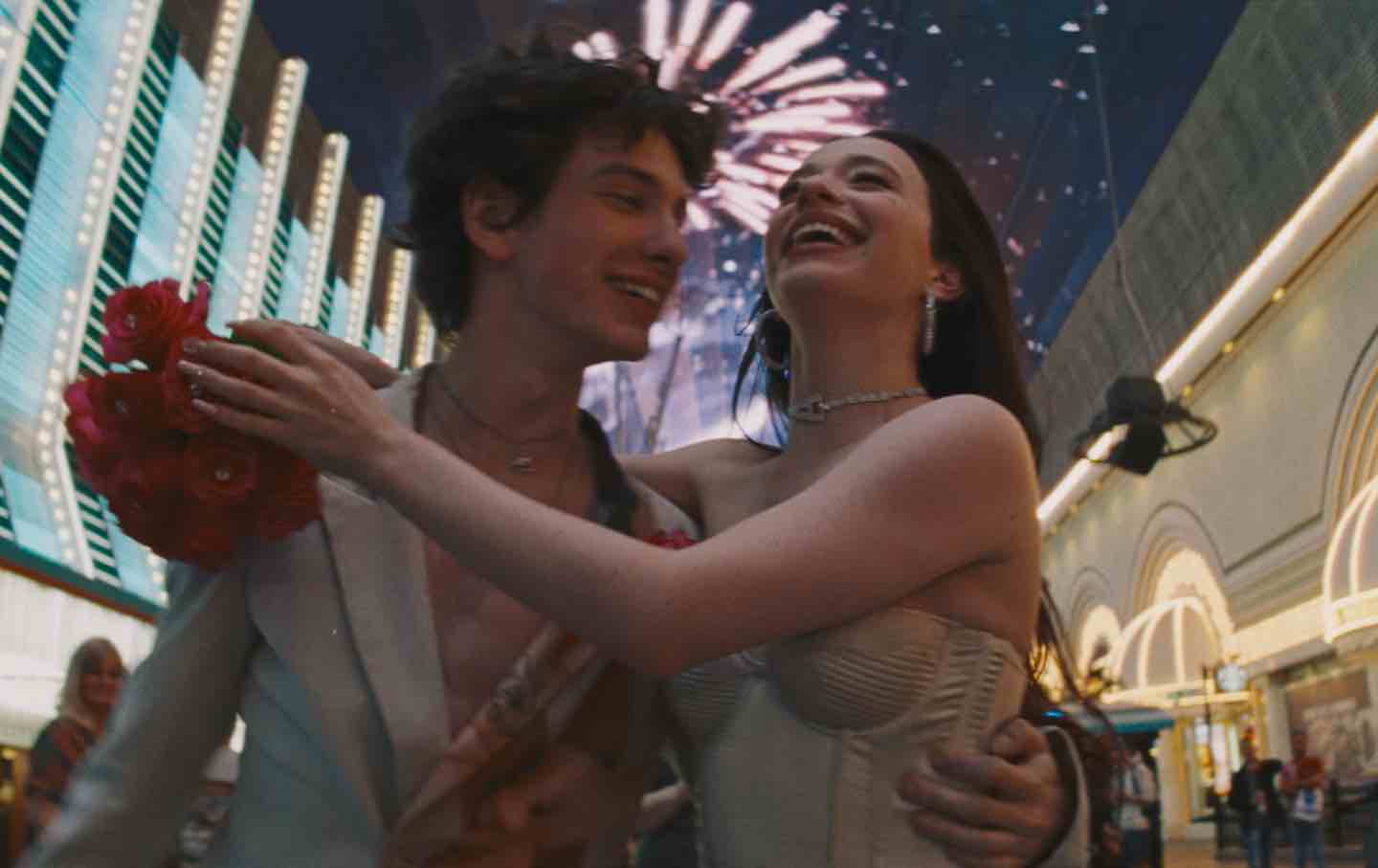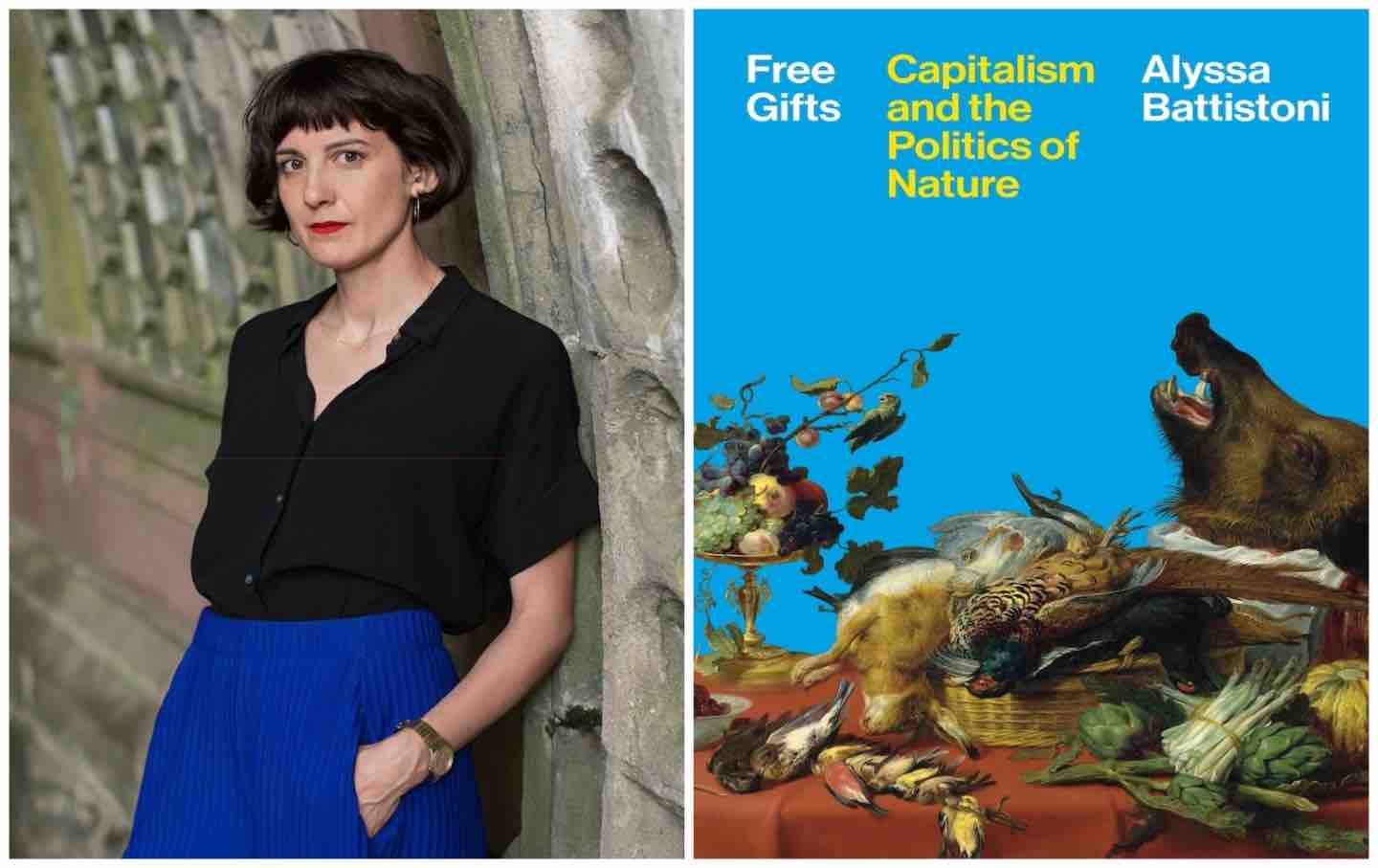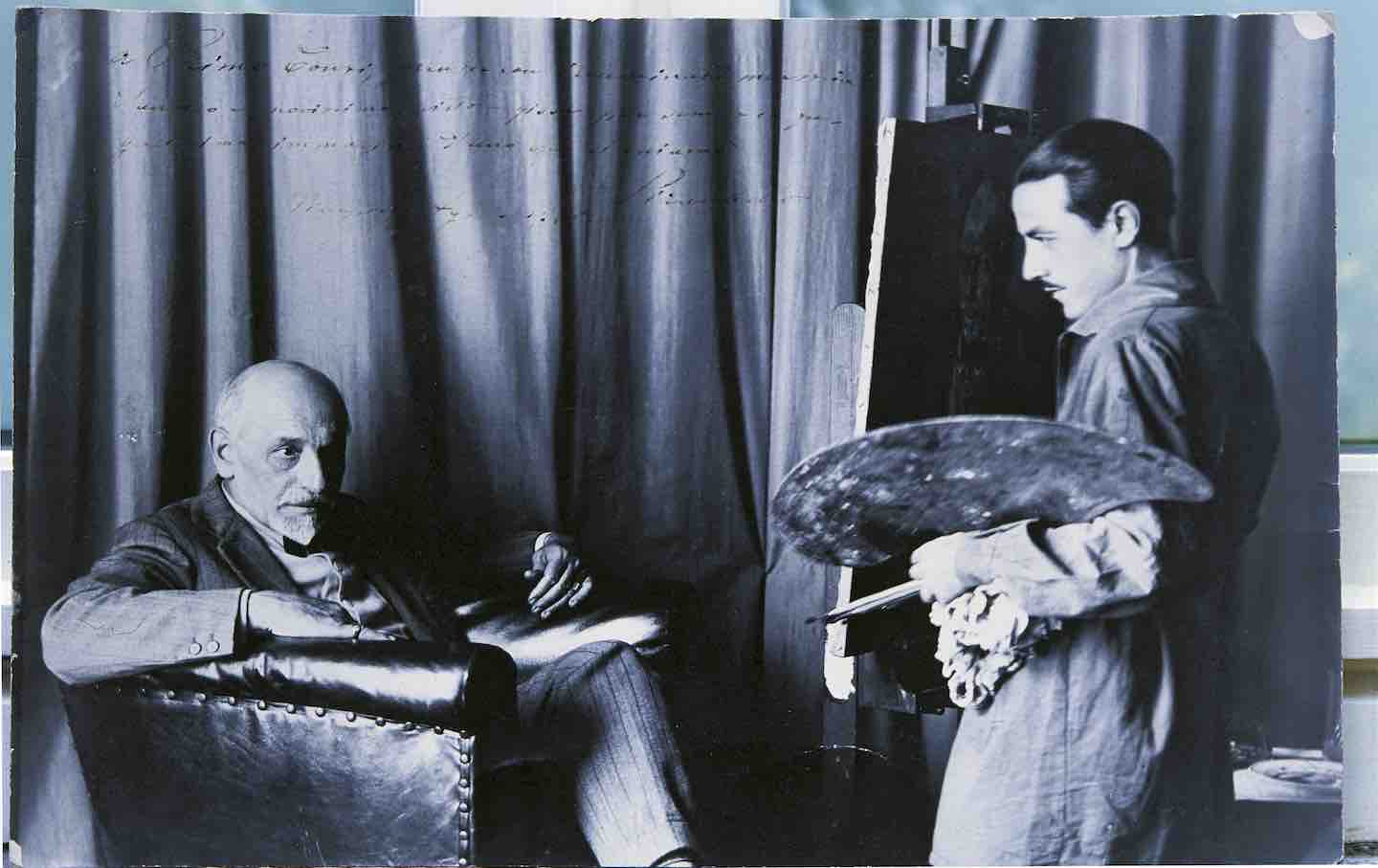“Anora,” an American Fantasia
In Sean Baker’s tragicomic film of a sex worker’s brush with wealth, he evokes auteurs of yore, who focused on the social realities of the country’s outcasts.

Mikey Madison as Ani and Mark Eydelshteyn as Ivan in “Anora”
(Courtesy of NEON)
It’s something of a cliché that married men run off with strippers to escape the sexless banality of their domestic lives. Yet the fantasy can work both ways; a wealthy john can fulfill the dream of material comfort and health insurance. Both sides should know better than to get swept up by these illusions, but in Sean Baker’s hard-knock tragicomedies—most of which are about sex workers—they usually can’t help it: Dreaming is a survival mechanism. In Anora, Baker’s latest, a stripper briefly finds deliverance in the arms of a monied client, only to be denied and come tumbling down to earth.
The film’s central character, a raven-haired 23-year-old who goes by the name Ani (Mikey Madison), makes a living off catering to men’s fantasies—and she likes it. In the opening shot, the camera pans across a row of dancers, each one mounted on top of a hypnotized man and swaying to the beats of a triumphant pop track. At the end of the row is Ani, topless and beaming—probably because giving a private lap dance means getting a generous tip. The Manhattan strip joint where she works—a real-life venue located in Hudson Yards—isn’t lurid and shady, as per convention, but a red-velvet playground of feminine hustle. In a zippy montage, we see Ani picking up clients, coaxing them to the ATM machine, and entreating them to backroom sessions. She’s a veritable saleswoman, always in control.
Ani seems to enjoy her work, but her performance of power and sexual assertiveness is also what makes her a commodity. Such a buoyant portrayal works to mask the chaos of the club and Ani’s lack of power outside of its confines—never mind her long nocturnal shifts, lack of employment benefits, and the cut of her earnings that goes to management. Toward the end of the night, Ivan (Mark Eidelstein), a baby-faced client from Russia, takes a liking to Ani, who is Uzbek American and speaks a little Russian. She agrees to see him outside the club and learns that they live in the same Brooklyn neighborhood, the Russian enclave of Brighton Beach. But whereas Ani lives in a shared apartment below an elevated subway track, Ivan’s pad turns out to be a mansion equipped with a full cleaning staff and a guard at the gate. Ivan, she discovers during a post-coital smoke sesh, is the son of a Russian oligarch, and his only desires in life are to party, play video games, and live out what he sees as the all-American dream—unbridled hedonism.
Ivan demands Ani’s attendance at his New Year’s Eve extravaganza, paying her a hefty sum to attend when she coyly responds that she’s supposed to work that night. When she arrives with her bestie—a strip-club colleague—Ivan’s mansion is decked out like a discotheque with strobe lights and shot luges. Ani doesn’t “work” until later in the night, after Ivan flirtatiously propositions her for sex at the holiday rate, but her labors don’t seem all that strenuous when she’s also gleefully partaking in the revelry. Still, Ivan’s friends mock her from the sidelines: “That’s the escort Ivan’s been hanging out with!” A goofy 21-year-old with a wobbly command of English, Ivan comes off as too naïve to pose a threat, while his obvious inexperience in matters of sex—much less hiring sex workers—works to break down Ani’s defenses; his enthusiasm for her exudes puppy love. The nonchalance with which he throws money around also sweetens the deal, and Ani proves willing—soon delighted—to play the bombshell to his excitable man-child, even showing him how to properly fuck. When Ivan offers Ani $15,000 to be his “horny girlfriend” for a week, she packs her bags and abandons the club to role-play the spoiled beau, which Baker depicts as a pop fantasia of youthful abandon. Their relationship is blatantly transactional, and yet the couple’s charisma, Baker’s lively direction, and the film’s sparkling visuals give its development a fairy-tale momentum, culminating in a Vegas wedding.
Yet despite all these fun and games, Pretty Woman, Anora is not. As is typical in Baker’s work, the dreams of his marginalized characters are often built up and entertained precisely to be knocked down, or at least revealed to be senseless through pathos and/or irony. At the end of The Florida Project (2017), 6-year-old Moonie escapes to Disneyland, though we know she will be separated from her mother and taken into foster care. In Red Rocket (2021), Mikey, an aging porn star now living in the Texas boonies, plots a return to Los Angeles, but his money is stolen in the final act. Baker’s rich characterizations are grounded in the cultural and economic conditions of the disadvantaged Americans whom he draws upon for inspiration, and the lamentable outcomes that often befall his characters play like reasonable extensions of their social realities rather than merely grim twists of fate.
It should therefore come as no surprise that Ani’s Cinderella moment doesn’t last. Scandalized by their son’s marriage from 5,000 miles away in Moscow, Ivan’s parents task Toros (Karren Karagulian), a quasi-mobster from Armenia and Ivan’s godfather, to snatch up the couple and forcefully annul their marriage. Toros sends his underling, Garnick (Vache Tovmasyan), and the Russian muscle-for-hire Igor (Yura Borisov), to seize the lovebirds, though Ivan is the opposite of chivalrous: Upon hearing that his parents are on their way to New York, he grabs a hoodie and sprints out the front door, leaving Ani behind to fend for herself.
This home-invasion scene sees Ani eventually tied up and gagged. Still, the dose of reality that puts Baker’s characters back in their places isn’t fully administered here; the scene, for all its violence, maintains a light touch, marking a genre shift from fairy-tale romance to screwball thriller. The mansion doesn’t belong to Ivan—it’s his parents—and the bumbling henchmen are more like wary, overextended service workers than bona fide thugs. Igor tries his best to sedate a vociferous Ani without inflicting real harm, while Garnick won’t stop whining about his head after she strikes him. Lamps, vases, and glass surfaces are shattered throughout this comedic tussle, which, above all, is aimed at showcasing Ani’s strength and wit, her refusal to stay quiet when Toros and company insist the marriage is over. Throughout the rest of the film, Ani stays feisty and guarded as she and her captors search for Ivan around the city; and to the bitter end, she holds on to the dream—of not just staying married to her Prince Charming but of having the power to make things go her way.
Baker’s characters may be condemned to their contexts, yet they are also treated like mythic heroes, simultaneously realistic and larger-than-life. From the beginning of his filmmaking career, he has centered Americans on the fringes, gaining a reputation as a progressive filmmaker for the complexity and detail he brings to these human portraits—specifically those of sex workers, people too often flattened or caricatured in the history of American cinema. With each film since his iPhone-shot breakout feature, Tangerine (2015), Baker’s budgets have grown larger, as have his ambitions: Each film’s canvas seems more expansive and stylish. With Anora, however, the politics that seemed to guide his choices of subject matter are eclipsed by the cinephilic impulses present in his work from the beginning, and now more fully expressed by dint of his expanded resources.
Like his New Hollywood progenitors and their immediate offspring—Martin Scorsese, Mike Nichols, and Jonathan Demme—Baker is attracted to outcasts, misfits, and everyday antiheroes. The figure of the sex worker fits squarely into this pocket, and this character’s recent move to center stage in films like Hustlers (2019) and Zola (2020) is linked to the decreased stigmatization in culture writ large toward paid sex and women’s sexualities more generally. Baker’s work has contributed to these shifting tides, though the appeal of Anora seems less related to the authenticity of its sex-worker protagonist or the transgressive nature of its story than to its colorful, kinetic, street-wise style and its playful use of genre tropes, all of which harks back to the American auteur cinema of yore. Also key is its heroine’s stature: Like other towering filmic dames—think Gloria (1980) or Erin Brockovich (2000)—Ani holds Anora’s center. She is the film’s moral core, its source of defiance, justice, and resilience.
A force of personality, Ani refuses at every turn to play the “little girl” or the trifling “night butterfly.” Madison’s performance occasionally feels cartoonish because of her exaggerated Brooklyn accent and her costume of a black sable fur coat and high-heeled leather boots. Nevertheless, her artifice lines up with the film’s comic trappings and the chaos that ensues after Ivan flees the scene. Ani, Toros, Igor, and Garnick infiltrate various Brighton Beach haunts and Manhattan nightclubs in a frenzied search over the course of one night. Toros is desperate because his employers, Ivan’s parents, are set to arrive the next day; Garnick is suffering from a concussion; and Igor, the film’s most subdued character, can’t stop looking at Ani. He’s impressed—soon evidently smitten—by her grit and tenacity. But by the film’s end, that determination reaches its limit.
When Ivan’s parents arrive by private jet, Ani presents herself as Ivan’s wife, speaking Russian to ingratiate herself with her new in-laws. Ivan’s mother immediately brushes her aside: The marriage is not real, she barks, adding that Ani’s Russian-language skills are a disgrace. Before getting on the plane back to Vegas, where the annulment will finally be processed, there’s a moment when Ani pauses to think. She’s not going; she’s getting a lawyer; she’s coming for half. Ivan’s wicked mother chuckles and reminds her of her limited means, which is followed by a wry, sharp cut to Ani aboard the plane, defeated. The social hierarchy remains unchallenged, because an ordinary American like Ani knows she has everything to lose.
Despite the film’s foot in fantasy and the epic woman it puts front and center, Baker refuses to yield to wish fulfillment and genuinely happy endings. Perhaps because there is no such thing as a happy ending in a world of profound inequality—a world in which women like Ani can perform power without actually having enough to change the conditions of their lives. So many of Baker’s films rely on this dissonance, and in the case of Anora, a film otherwise so free and funny, the cruelty of such a dynamic feels pointed, with Baker’s devotion to hard truths having less to do with any political commitment than his intuition of what makes a narrative have weight and feel universal. In the film’s last scene, the arc from comedy to tragedy is fully realized when Ani breaks down in front of Igor, relinquishing the steely front she had fought so desperately to maintain. Here, at least, her story comes full circle.
Disobey authoritarians, support The Nation
Over the past year you’ve read Nation writers like Elie Mystal, Kaveh Akbar, John Nichols, Joan Walsh, Bryce Covert, Dave Zirin, Jeet Heer, Michael T. Klare, Katha Pollitt, Amy Littlefield, Gregg Gonsalves, and Sasha Abramsky take on the Trump family’s corruption, set the record straight about Robert F. Kennedy Jr.’s catastrophic Make America Healthy Again movement, survey the fallout and human cost of the DOGE wrecking ball, anticipate the Supreme Court’s dangerous antidemocratic rulings, and amplify successful tactics of resistance on the streets and in Congress.
We publish these stories because when members of our communities are being abducted, household debt is climbing, and AI data centers are causing water and electricity shortages, we have a duty as journalists to do all we can to inform the public.
In 2026, our aim is to do more than ever before—but we need your support to make that happen.
Through December 31, a generous donor will match all donations up to $75,000. That means that your contribution will be doubled, dollar for dollar. If we hit the full match, we’ll be starting 2026 with $150,000 to invest in the stories that impact real people’s lives—the kinds of stories that billionaire-owned, corporate-backed outlets aren’t covering.
With your support, our team will publish major stories that the president and his allies won’t want you to read. We’ll cover the emerging military-tech industrial complex and matters of war, peace, and surveillance, as well as the affordability crisis, hunger, housing, healthcare, the environment, attacks on reproductive rights, and much more. At the same time, we’ll imagine alternatives to Trumpian rule and uplift efforts to create a better world, here and now.
While your gift has twice the impact, I’m asking you to support The Nation with a donation today. You’ll empower the journalists, editors, and fact-checkers best equipped to hold this authoritarian administration to account.
I hope you won’t miss this moment—donate to The Nation today.
Onward,
Katrina vanden Heuvel
Editor and publisher, The Nation








